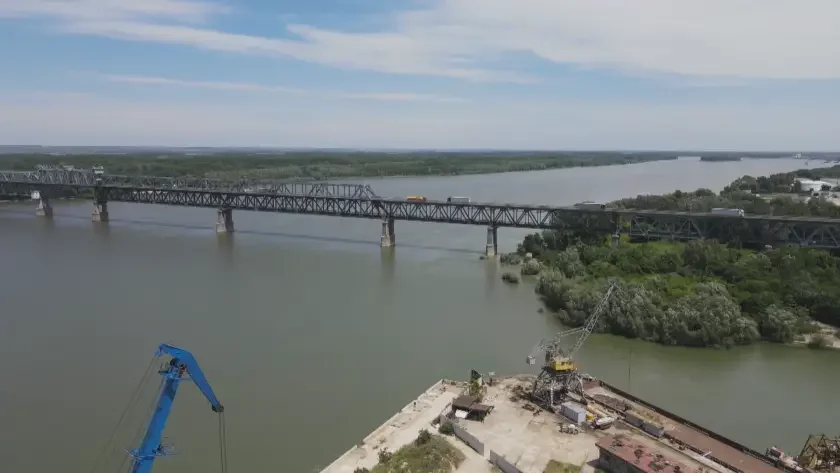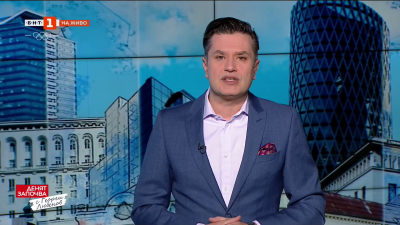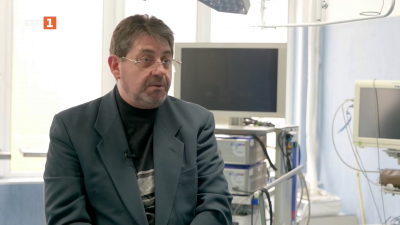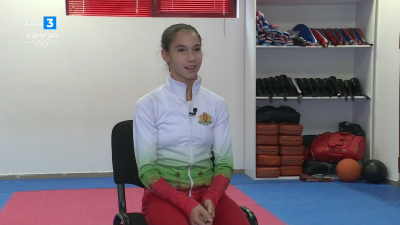Floods and tornadoes in the north, drought in the south - how will Bulgaria's climate change by the end of the century?

The long-term forecast, until the end of the century, predicts that Southern Bulgaria will be affected by water shortages and the north of the country by floods and tornadoes. The analysis by hydrologists and meteorologists looks at two scenarios - realistic and pessimistic.
According to the realistic scenario, average temperatures are predicted to rise by between 1 and 2 degrees in the coming years, but according to the pessimistic scenario - temperatures could increase by 6 degrees. According to both forecasts, droughts will be longer and more severe. Precipitation is expected to decline by between 5% and 30%, and heatwaves will last on average between 5 and 10 days longer. Against this backdrop, as temperatures rise, we will often see short-duration, but intense rainfalls leading to flooding.
"Many people ask me - what kind of olives do you sell - are they green or black. All olives are green. After September, October they ripe and turn black," says Yovko Ailov, an olive grower in Rakovski, a town in Southern Bulgaria.
Olives, oranges, tangerines are just a few of the fruit trees that Yovko Aylov has been growing in Rakovski for more than 10 years.
"With the changes in the climate in Bulgaria, many farmers are beginning to plant olive trees in large numbers. One of the olive varieties is most commonly used in olive oil production. Very oil-bearing, this is the olive variety that produces the best quality of olive oil in the whole world," he explains.
Milder winters brought on by the climate change create conditions in more places in the country to grow crops typical for Greece and Turkey.
"Farmers started planting a lot of pistachios, olives, various figs, a lot of pomegranates, more exotic varieties of plants that are not typical for Bulgaria," Yovko Ailov pointed out.
But how will the climate change in Bulgaria? To find out - from the town of Rakovski we go to Switzerland to the Federal Institute of Technology in Lausanne, where Dr Valentin Simeonov works.
"Heat waves, fires, floods, hailstorms - they will increase both in strength and duration," explained Dr Valentin Simeonov, Federal Institute of Technology, Lausanne, Switzerland.
And the reason for this lies even in the frequent going to the polls.
"Some draconian laws have to be passed to protect forests and the practice of trading votes for firewood - it would be better to replace it with giving coal, it would be more environmentally friendly because the loss of the forest is incomparably greater than the release of greenhouse gases from burning coal," says Dr Valentin Simeonov.
Forests are a natural regulator of temperatures and flooding. The older and more natural a forest is, the more serious the prevention. The main threat to forests, apart from logging, is fire. Bulgaria remains one of the few countries with a large forest fund that does not have fire-fighting aircraft to extinguish fires in hard-to-reach places.
"In France there is a 30-30-30 rule. In temperatures above 30 degrees per Celsius, wind speeds below 30 km/h and humidity below 30%, all access to forests is forbidden due to the danger of fires," explains Dr Valentin Simeonov.
According to the long-term analysis of the Institute of Meteorology and Hydrology, in the coming years, the water in the rivers in southern Bulgaria is expected to decrease by nearly 20%. Short-duration but intense rainfalls are expected to cause floods in Northern Bulgaria as well as on the Southern Black Sea coast and stormy winds, even tornadoes may be observed in Northeastern Bulgaria.
"Unlike politics, nature abhors vacuum, we are all subject to change, including our country. For the next few years, we are sure to witness multiple intense rainfalls leading to floods. We will see a long number of days without precipitation - that is, an increase in drought intensity, and the worst thing is that these mutually exclusive phenomena will go hand in hand," says Simeon Matev, a climatologist.
BNT: How do you combat this?
Simeon Matev: With strategy, it's fought with innovative solutions in agriculture, and it's fought with changing each one of us.
Nearly 2/3 of the glaciers in the Alps, which feed about 30% of the Danube, have already melted. The exclusion of the river as a water source for Bulgaria makes our country water poor.
Get the latest news wherever you are!
Follow us on
Facebook
and
Instagram
Follow BNT’s YouTube channel
You can now also watch us on
TikTok
Find us on
Google News























